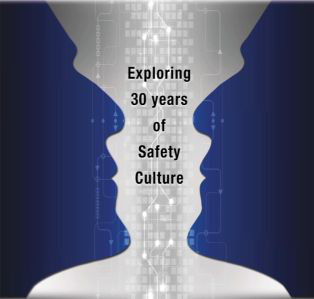Speaker
Synopsis
The paper presents Rosatom Central Institute for Continuing Education&Training (CICET) (hereinafter - CICET) current activity in areas of nuclear facilities personnel training and relevant researches.
CICET has a strategic goal to get the “Safety Culture” competence center for ROSATOM organizations. Safety culture ensures for nuclear organization to achieve both the business goals and high safety level. Safety is a state of ergatic system when influence of internal and external factors impact does not lead to its operation deterioration or stoppage. Dramatic history of world nuclear energetics shows that HOF the main assembly of factors influencing on safety. Individual work performance and organizational processes are visible, “artefact” part of the organization culture. Approaches and tools to enhance human and organization behavior are under CICET activity focus.
In safety culture area CICET has develop and apply four training courses. The set of training courses implementation allows to form understanding: What Safety Culture is? What is the Safety Culture model (attributes, indicators) for the organization? How organize Safety Culture Enhancement System? Who (roles, resources) must implement the activity? What methods and tools should be used?
Course 1: “Safety Culture in nuclear facilities concept”. The course contains three main topics: history and modern description of safety culture concept; requirements to safety culture on government, senior management, line managers and individual levels; safety culture characteristics in complex social technical systems.
Course 2: “Safety culture enhancement in high risk facilities”. The course contains the following topics: safety culture enhancement organization; safety culture enhancement implementation and the activity assessment and further improvement.
Course 3: “Safety culture enhancement: human performance improvement”. The course contains two main topics: personnel reliability concept and system to support personnel reliability in nuclear facilities.
Course 4: “ Safety culture enhancement: the process description, development and integration to the organization management system; safety culture enhancement regulations and guides development; safety culture enhancement process introduction.
Moreover, CICET starting from 2012, holds International Summer School on Safety Culture. The mission of the school - promotion and development of the methodology and safety culture practice in organizations that use dangerous technology to provide high reliability and effectiveness their operations.
The school highlights many practical applications inside those following topics:
- Modern view on Safety Culture;
- Safety Culture influence on a personnel reliability and an organization effectiveness;
- Safety Culture continuous improvement system;
- Safety Culture assessment approaches and tools;
- Practical method on Safety Culture commitment formation;
- Leadership for Safety;
- Management for Safety;
- Nuclear Knowledge management in Safety Culture context;
- Systemic safety and managing for the unexpected.
Most training courses developed base of on system approach, field researches and methodological applications. For example, CICET has developed taxonomy of factors (including HOF) influencing on human performance. The model is applied now to implement inspection activity and could be used in training materials development, root cause analysis, risk management and safety culture models building.
| Country or International Agency | Russian Federation |
|---|---|
| Type "YES" to confirm submission of required Forms A and B via the official channels | YES |

